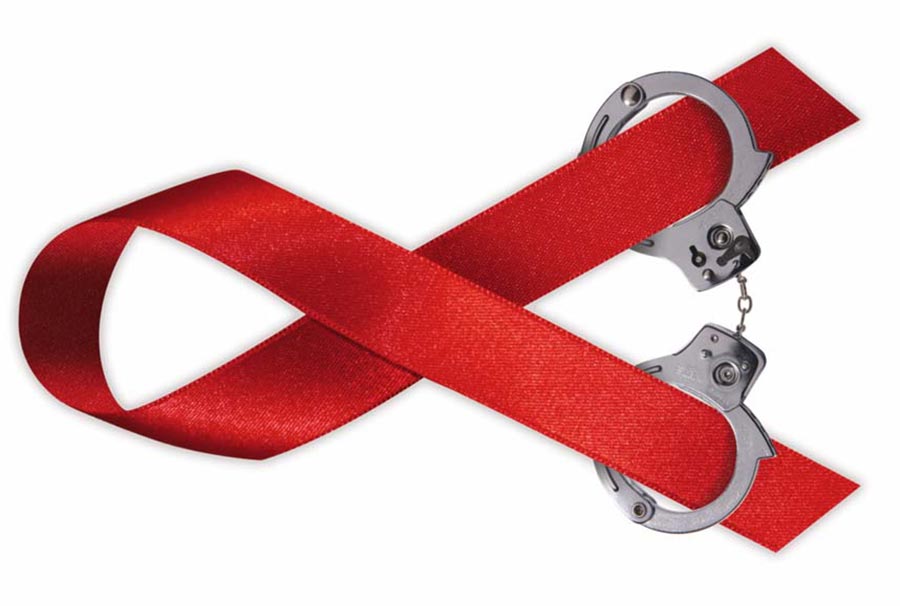In the more than 30 years since the first report of HIV, medical treatment has transformed the disease, enabling people with HIV to live healthy and productive lives. Regrettably, the stigma and hysteria around HIV have remained the same, and in some instances, have gotten worse. Somewhere along the line, HIV has been recast from a public-health problem to a criminal-justice issue.
HIV criminalization — the alarming trend of criminally charging an HIV-positive person for conduct that, if done by an HIV-negative person would not be considered a crime — is a clear example of stigma and hysteria overriding medical science. Criminalizing HIV is not an effective approach to HIV prevention.
Public-health efforts to reduce HIV transmissions advocate for “safe sex” and emphasize mutual responsibility and communication between partners. In sharp contrast, HIV criminalization removes all responsibility for transmission risk from the HIV-negative partner, while categorizing the HIV-positive partner as a criminal.
Public-health efforts are aided by increasing public awareness of the limited routes of HIV transmission. These efforts are undermined when misconceptions about HIV transmission are reinforced by a criminal legal system that doesn’t distinguish actual risk from unsupported fears about exposure.
HIV criminalization dehumanizes already-marginalized communities that are both disproportionately affected by HIV and disproportionately targeted by the criminal-legal system — sex workers, drug users, people of color, transgender women, gay men and poor people. Criminalization creates another basis for their arrest and imprisonment, and reinforces stereotypes that define their sexuality as inherently dangerous or predatory.
The Pennsylvania Crimes Code’s only HIV-specific sections relate to prison and sex work. An incarcerated person with HIV who spits at a corrections officer could face an additional sentence of up to 10 years for the crime of assault by prisoner, despite the fact that spitting does not transmit HIV. Adult prostitution is a misdemeanor in Pennsylvania, unless one of the parties knows, or should have known, that he or she is HIV-positive. An HIV-positive sex worker can be charged and convicted of a felony, even if HIV transmission could not occur because of the nature of the sex act.
General criminal laws have also been used to prosecute people with HIV based on their status in Pennsylvania. Pennsylvanians with HIV have been charged with attempted murder, reckless endangerment and sexual assault for failing to disclose their status to consensual sexual partners, regardless of whether there was a transmission risk. HIV-positive Pennsylvanians have also been convicted of aggravated assault for incidents involving biting and spitting. The HIV status of the defendants “aggravated” the assault, despite the fact that HIV cannot be transmitted by biting and spitting.
Current medical treatment effectively reduces transmission risk. Singling out people with HIV for prosecution and punishment based on their status, regardless of their intent, the risk to others or actual transmission is unjust. We urge policymakers to modernize existing criminalization laws and to direct resources to evidenced-based prevention interventions.
